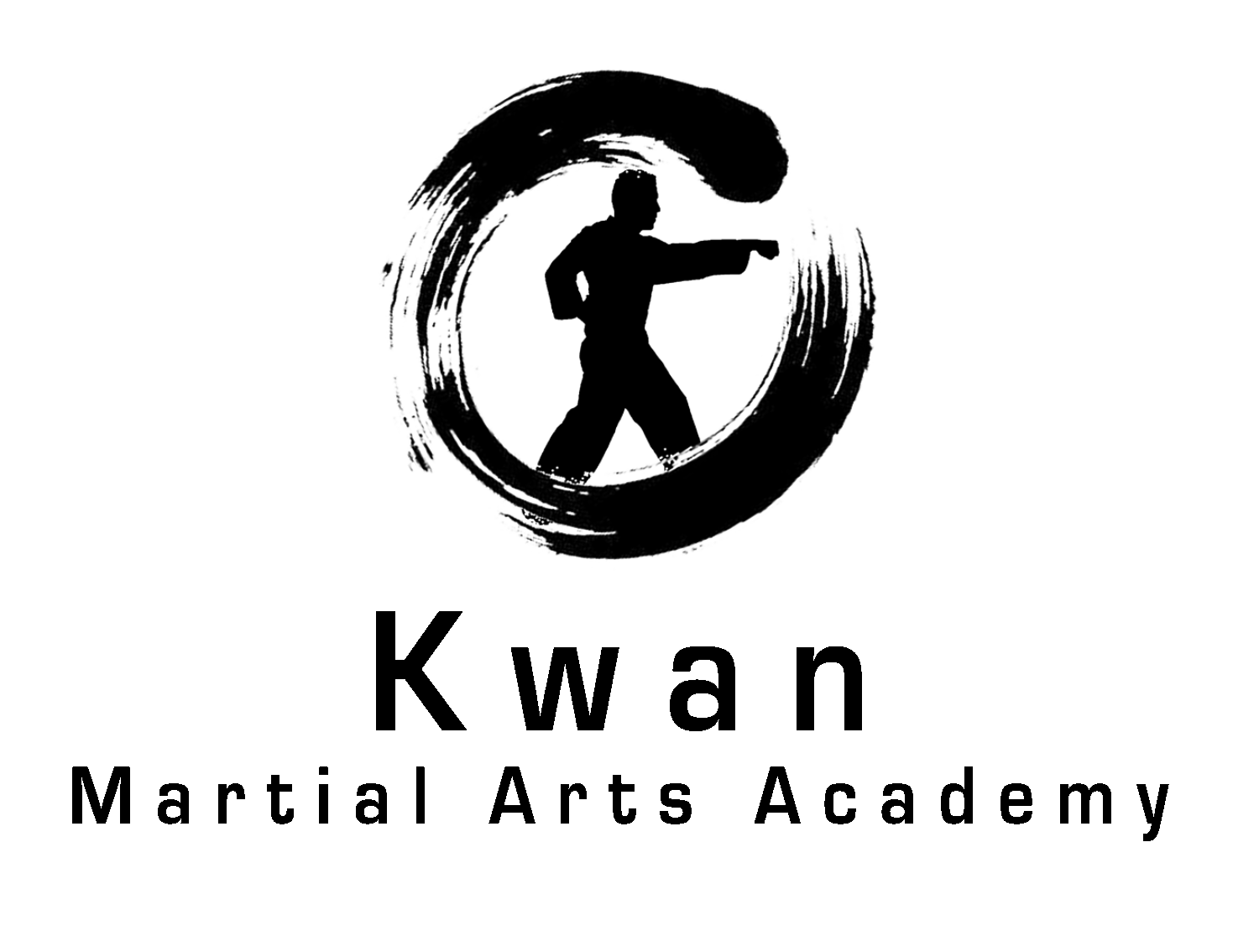At Kwan Martial Arts Academy we teach the traditional Korean Martial Art known as Tang Soo Do Moo Duk Kwan. Ours is on the development of life skills through hard work. Tang Soo Do is excellent for fitness. Regular training improves muscle tone, stamina and helps promote good mental health.
The History of Tang Soo Do Moo Duk Kwan
At its core, Tang Soo Do Moo Duk Kwan is essentially a Korean form of Japanese karate.
Literally translated, the word “Tang” means the T'ang Dynasty of China, reflecting the shared cultural background between China and Korea (617-907 AD). “Soo” means hand, but it implies fist, punch, strike, defence, etc. “Do” means a way of life or art. Thus Tang Soo Do means " The way of the Chinese Hand".
For a complete history, visit the wiki page.
Below is a rough timeline of the development of Tang Soo Do and therefore Tae Kwon Do.
1800's
Okinawan Un-armed combat styles emerge
1891
Ankō Itosu is born(Okinawan Karate)
Known as the Grandfather of Modern Karate
Believed in fishing the opponent in 1 decisive strike rather than successive quick strikes to vital areas
Said to be the first person to practice what resembles Shotokan karate
Itosu is credited with teaching his art in Okinawan Schools and removing the secrecy around the art
1868
Gichin Funakoshi is born
Known as the Father of Moden Karate
Trained under Ankō Itosu
Founder of Shotokan Karate
Established over 30 Dojos in Japan, mostly in Universities
Adapted the colour belt system from Judo and the traditional bowing and formalities
1907
Won Kuk Lee is born
Created the style “Tang Soo Do”
Trained under Gichin Funakoshi
Later renamed his style “Chung Do Kwan”- Blue Wave School
Chung Do Kwan peaked at over 50,000 members
1914
Hwang Kee is born
Founder of Moo Duk Kwan
Studied Soo Bahk and Tae Kyon in school and Okinawan Karate by reading books
Won Kuk Lee, claimed Hwang Kee trained under him. Kee disputed this.
Claimed to have discoveries from an ancient woodblock print “Muye Dobo Tongji” and incorporated these into his art.
Founder of Soo Bahk Do
1929
Jae Joon Kim is Born
Trained under Hwang Kee
Known as a Masters Master or the Legendary Jae Joon Kim
Introduced Moo Duk Kwan Tang Soo Do to America
Founded the World Traditional Tang Soo Do Federation
1939
Gichin Funakoshi builds the “Shotokan” Dojo
1940
Chuck Norris is Born
Studied Judo under Mr Ahn and Tang Soo Do under Master Jae Chul Shin
Founded
National Tang Soo Do Congress
United Fighting Arts Federation
Kickstart Kids
Developed his own arts Chun Kuk Do and American Tang Soo Do
1944-1946
Pre-Korean War
The 5 Korean Kwans
1944 Won Kuk Lee
Chung Do Kwan School teaches " Tang Soo Do"
1944 Byung Jick Bo
Song Moo Kwan
1945 Hwang Kee
Hwa Soo Do Moo Duk Kwan (Adopts "Tang Soo Do")
1946 Sang Sup
Chun Jido Kwan
1946 Lee Nam Suk and Kim Soon Bae
Chang Moo Kwan
1947
Hwang Kee began teaching his new Martial Art, Tang Soo Do Moo Duk Kwan
1953
Post-Korean War
The Second Generation Kwans
1954 Kyo Yoon Lee
Han Moo Kwan
1955 Choi Hong Hi and Nam Tae Hi
Oh Do Kwan
1956 Hong Jong-Pyo and Chul Hee Park
Kang Duk Won
1956 Young won Lee
Jung Do Kwan
1952
Hwang Kee forms The " Korean Tang Soo Do Association"
1953
The 5 Original Kwans formed the Korea Kong Soo Do Association
1954
General Choi Hong Hi performs a Tang Soo Do demonstration for Rep. Of Korea president Rhee Syngman.
Rhee directed that martial arts become an integral part of military training
Pushes for a single Korean Martial Art and requests the Nine Kwans to unify.
1955
The Nine Kwans met to discuss a name for the new Korean Martial Art
Tae Soo Do was the leading choice
1957
Tae Kwon Do is suggested and accepted by The Nine Kwans and becomes commonplace by 1959
Tang Soo Do Moo Duk Kwan is introduced to US Servicemen
Hwang Kee integrates “Soo Bahk” techniques into his teachings from the “Muye Dobo Tongji”
1958
The Korea Tang Soo Do Association formed initially by Hwang Kee
Hwang Kee withdraws Moo Duk Kwan from Tae Kwon Do and forms Tang Soo Do
1959
Korean Taekwondo Association formed from the Korean Tang Soo Do Association and Korean Kong Soo Do Association
Hwang Kee
Removes Moo Duk Kwan Tang Soo Do from the Korean Taekwondo Association
Forms Tang Soo Do as a Martial Art from remaining members
1960
Korean Tang Soo Do Association renamed to Korean Tae Soo Do Association(KTA)
The Korean Tae Soo Do Association began to consolidate the various Kwans into what becomes known as the Nine Kwans
1965
General Choi convinces the KTA to rename itself to Korean Taekwondo Association
Moo Duk Kwan
Hwang Kee Resisted the KTAs kwan unification.
Both Tang Soo Do and Soo Bahk Do are taught internally.
Some others support the KTAs Tae Kwon Do teachings
1966
General Choi resigns from KTA and forms International Tae Kwon Do
1971
Tae Kwon Do becomes a National Sport in Korea
Kukkiwon is established as the South Korean Academy of Taekwondo
1990
Des Galligan establishes Tang Soo Do in Ireland
1995
Hwang Kee renames " Tang Soo Do Moo Duk Kwan" to "Soo Bahk Do Moo Duk Kwan" officially
2002
Hwang Kee passes away, and his son Hwang Hyun Chul is named successor
World Moo Duk Kwan Federation was founded by 1st generation Students of Hwang Kee
2007
Jae Joon Kim passes away in Brandon Florida
The history of Tang Soo Do is an ongoing endeavour and will continue to be written for years to come
